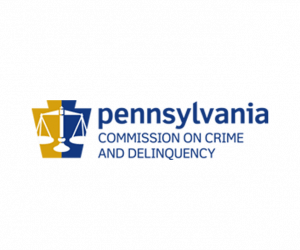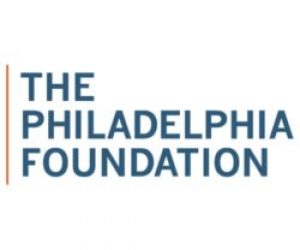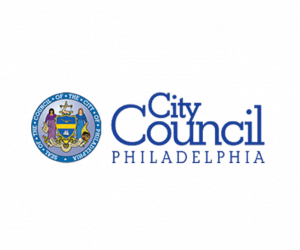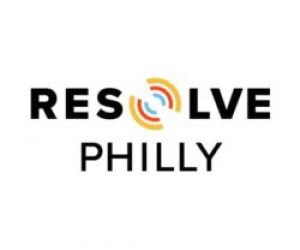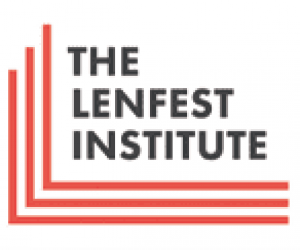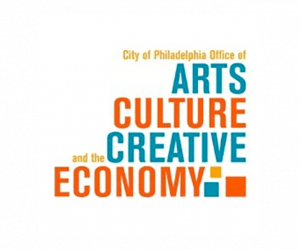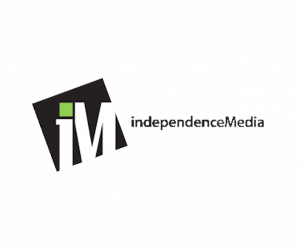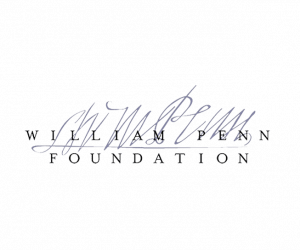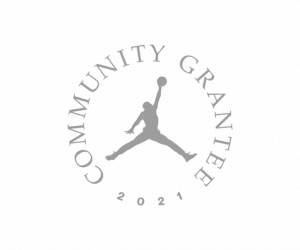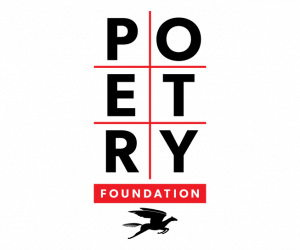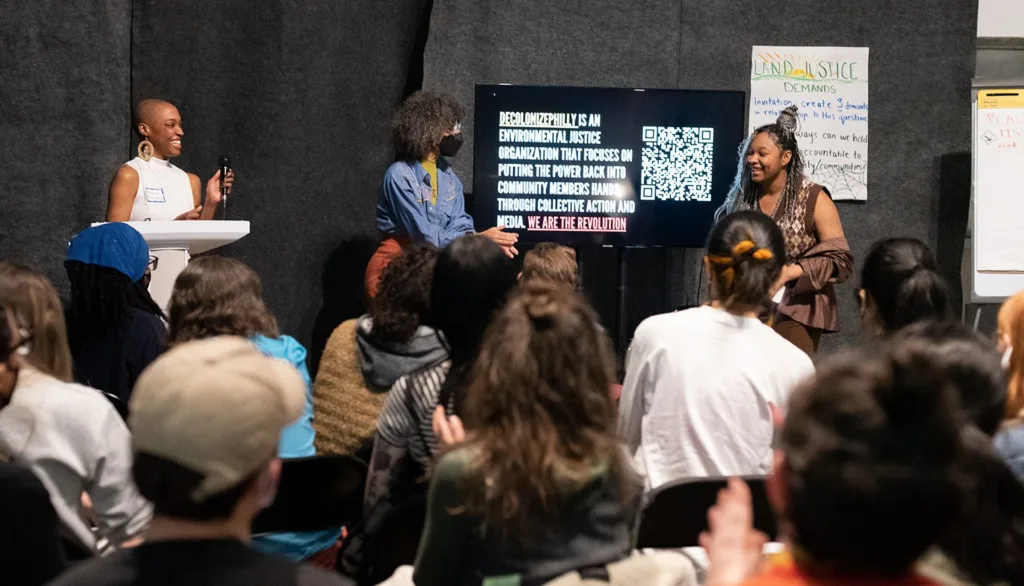
By Andrew Lee
With Republican control of the legislative, judicial, and executive branches, President Trump initiated his second term with a rapid-fire barrage of sweeping far-right policies. Liberal politicians and celebrities loudly denounced Trump after the 2016 election. Today, as Trump launches even more extensive and effective attacks on oppressed communities across the United States and around the world, the response from a national Democratic Party in disarray is tepid at best.
But in the absence of a televised, politically-endorsed Resistance, the real, everyday resistance of activists, organizers, and changemakers is only continuing–and intensifying. Love Now Media spoke with Christopher R. Rogers of Abolition School, Van Sam of VietUnity, and Keyssh Datts of Decolonize Philly about their ongoing work fighting for community and liberation.
Van Sam
Organizer, VietLead
How does Trump’s election affect your community work?
“I mostly work with formerly incarcerated Southeast Asian folks facing deportation: folks resettled here as refugees after the War in Southeast Asia who got entangled with the criminal justice system, served their time, and are now facing detention and deportation years later. There’s just a lot of fear and not a lot of legal relief available, so it can trigger one of two things. Folks are either really activated or really afraid.”
What signs of hope or resistance have you seen that people might not be aware of?
“One of our folks came up with this concept of community refuge, the idea that our community has always found refuge in each other. At the end of the day, it’s going to be the people from our community who are going to look out for each other. When folks came and resettled here in the ‘70s and ‘80s, it was the neighbors who looked after their kids while they were at work all day harvesting blueberries or the local corner store that allowed folks to buy groceries and owe the money until the end of the month when they get paid. In December, VietLead launched a Community Defense Fund to support folks facing detention and deportation.”
How can people support community given what’s going on?
“We’re trying to figure out how to hold a model that allows folks to be plugged in, given how many people are activated at this moment, and not buy into this narrative of despair. There are going to be a lot of things that will impact all of us. Figuring out how to be in community together, fight alongside each other, and protect each other is more important than being in despair.”
What do you want our city to look like four years from now?
“I’m curious about what it would look like for our local government and communities to actually support immigrants. Since Trump got into office until now, there hasn’t been any explicit commitment from the Mayor’s office to ensure Philly is a sanctuary city. People are facing threats of detention and deportation on the daily. It’s about allocating resources for our community to thrive, not just saying, ‘I support XYZ.’”
I hope that four years from now, all of us are building a stronger connection to each other across racial and class lines to protect each other: building and deepening our relationships through this all so that we can actually care for each other.”
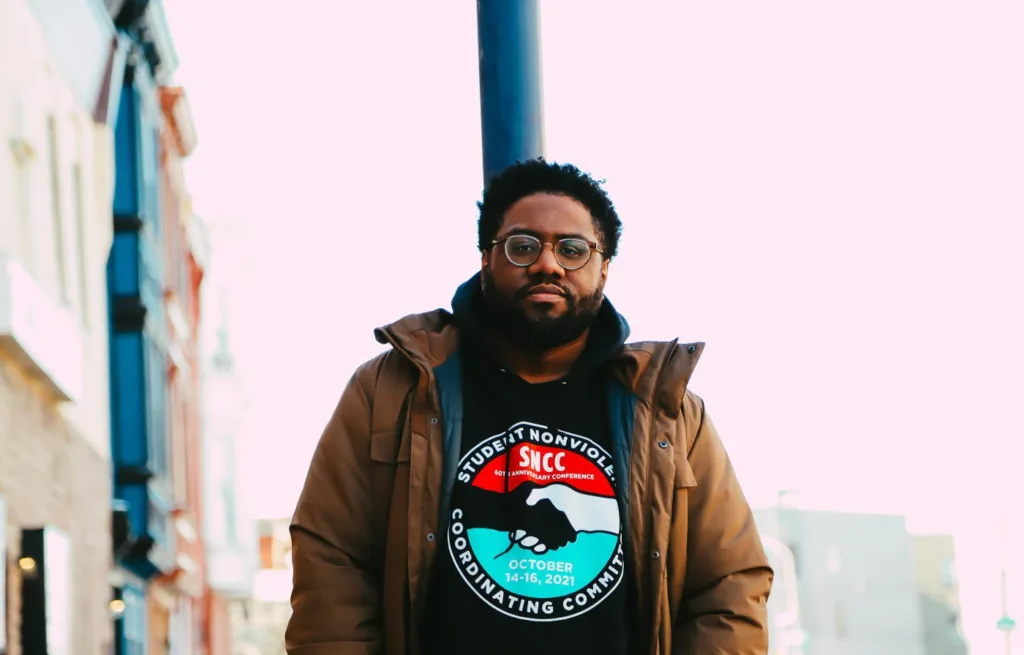
Christopher R. Rogers
Facilitator, W.E.B. Du Bois Movement School for Abolition & Reconstruction
How does Trump’s election affect your community work?
“To be honest, it really hasn’t. I mean, beyond just making me more anxious. It has helped more of us realize that electoral politics is not the engine of social transformation that some people believe it is. We have to think about and practice other ways to build, gather, and cohere community power.”
What signs of hope or resistance have you seen that people might not be aware of?
“The work we do with Abolition School is going as smoothly as it can right now. We are intent on stewarding a community of folks who have a sense of relationship with one another and an emerging shared vocabulary of resistance that allows us to analyze what’s happening in our city in sharp and critical ways, exploring some of the contradictions that we’re all experiencing, and come up with new platforms based on historical struggles to provide answers to the material needs of our neighborhoods.”
How can people support community given what’s going on?
“Community is everywhere. Talk to your neighbor. Talk to people in Fresh Grocer. Go to your local library. Organizing is about being with the people—and I didn’t say “comrades” there, I said “people.” Maybe, get to know yourself more so you can be comfortable around people who don’t think like you. In order to build the critical mass necessary to overturn this shit [motions with hands], we’re gonna have to get real uncomfortable and figure out ways to be with all kinds of people that we might not like all the time. So get to know people, be with people. But I don’t think you can be with people too well unless you really do the work to get to know yourself first.”
What do you want our city to look like four years from now?
“I would love for Abolition School to sustain ourselves for the next four years. I think the question will be not just political education but what other platforms and institutions we need to sustain a radical ecosystem in Philadelphia. I’m at Hakim’s Bookstore; I’m gonna continue to be there. I want to see nighttime spaces, leisure spaces, and spaces like my Chester Gifted Program project, where we’re finding ways to blend joy with movement work. We need to figure out how to dismantle, interrupt, reeducate, challenge, and push on the base that invests in the current status quo of the city administration. It’s quite obvious to anyone willing to look that they don’t have a solution for the problems our city faces, certainly not in any way that speaks to those experiencing the brunt of structural violence. I think it’s our job as organizers to present a true, lasting alternative and get our people behind it, to get our people to prefigure the world they want to live in. We have to have higher goals.”
Keyssh Datts
Documentarian and founder, of Decolonize Philly
How does Trump’s election affect your community work?
“Understanding that this country was built on white supremacy, I feel like I was already prepared for the worst-case scenario. It is scary knowing we live in a world where the wealthy can sacrifice our communities for their personal gain. We need to build an ecosystem of mutual aid outside the system.”
What signs of hope or resistance have you seen that people might not be aware of?
“We—meaning organizers, people outside of the system—have already been creating solutions to keep us safe, fed, and sheltered.
What keeps me going is history and my ancestors. I didn’t realize that something for me to shift as an organizer was the idea of, how do you have joy? I really do feel like people died for our right to live. I’m going to live a joyful life. I’m going to show up and live and going to choose life. To me, that is part of my resistance.”
What do you want our city to look like four years from now?
“I want people who struggle with housing to no longer struggle. I want people not to struggle accessing food. I want people who have health issues to receive the care that they need. I want people who need clothing to have clothing. I want people who are in office to understand that at the top of the chart is not them but it’s the community. I want land not to be exploited. I don’t want the city to get to a point where there’s nobody who looks like me, where developers have been able to disrupt it to the point that anybody who doesn’t have certain resources can’t be in the city. I just want people’s bare necessities to be met. I want people power within the city to thrive to the point where it stops any exploitation of both our communities and the land.”
Andrew Lee will be in conversation with Assistant Professor at the University of Pennsylvania’s Weitzman School of Design, Akira Drake Rodriguez, to discuss his book Defying Displacement on March 18th.
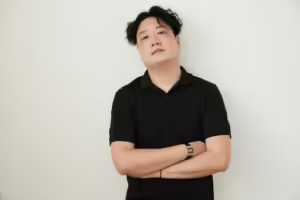
Andrew Lee
Andrew Lee is the Philadelphia-based author of Defying Displacement (AK Press, 2024). His work has appeared in Teen Vogue, YES! Magazine, and The New Inquiry. Lee writes at In Struggle.

